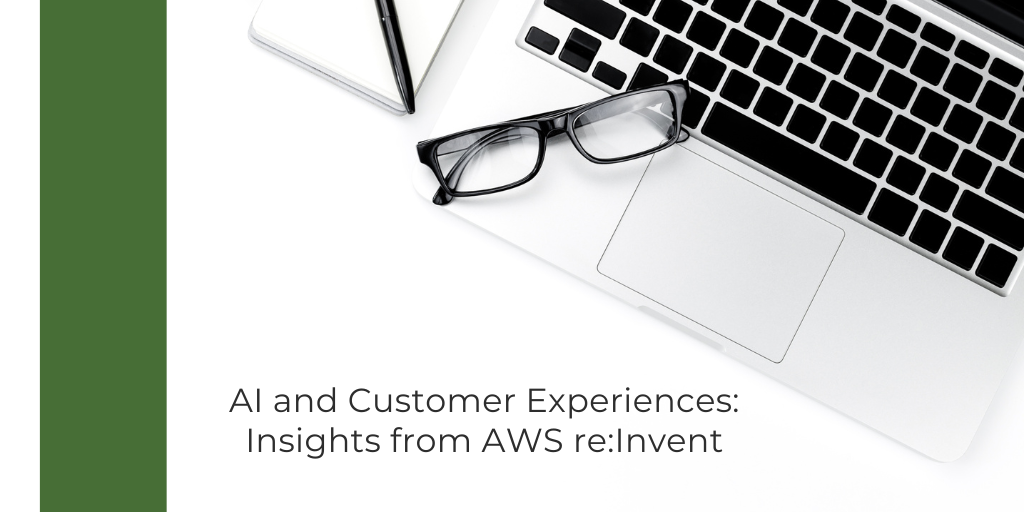I had the privilege of attending a session during AWS re:Invent that shed light on the ever-evolving landscape of customer interactions. Kelly Slothower, the speaker from Cognizant, presented compelling insights into the strategies that businesses are adopting to elevate customer experiences in a rapidly changing digital world.
Key Takeaways:
The Need for Acceleration
Kelly began by highlighting the incredible pace at which technology is transforming customer expectations. Drawing parallels with industry giants like Starbucks, Amazon, and Netflix, she emphasized the need for businesses to adapt swiftly to meet evolving customer demands.

Modern Experience Principles
The speaker outlined four modern experience principles that are crucial for businesses aiming for differential growth:
- Presence: Establishing a meaningful online presence.
- Persistence: Ensuring consistency across interactions.
- Personalization: Tailoring experiences to individual customer needs.
- Partnership: Creating an ecosystem that spans end-to-end customer journeys.
The Role of AI in Customer Relationships
Kelly stressed the significance of strategically aligning customer experiences with AI technologies. Rather than replacing human interactions, AI should serve as a mentor, empowering customer service teams with enhanced capabilities. This approach not only fills the turnover gap but also boosts productivity, improves customer sentiments, and reduces the need for managerial intervention.
Her recommendations:
“Customer relationships are too vital to entrust solely to humans.”
- Mentor agents with AI, giving them "superpowers" to better serve customers.
- Shift metrics to focus more on customer-centric outcomes.
Address turnover gaps by empowering lower-skilled staff and fostering skill growth.
- Leverage AI tools to increase productivity
- Improve customer sentiments through thoughtful AI integration.
- Reduce the need for managerial intervention with AI-driven efficiencies.
The integration of AI has the potential to reshape perspectives within the realm of skilling and learning. But, among these advancements, a constant truth prevails: learning and credentialing organizations thrive when they align with the dynamic landscape of customer interactions and evolving expectations in the education domain.







